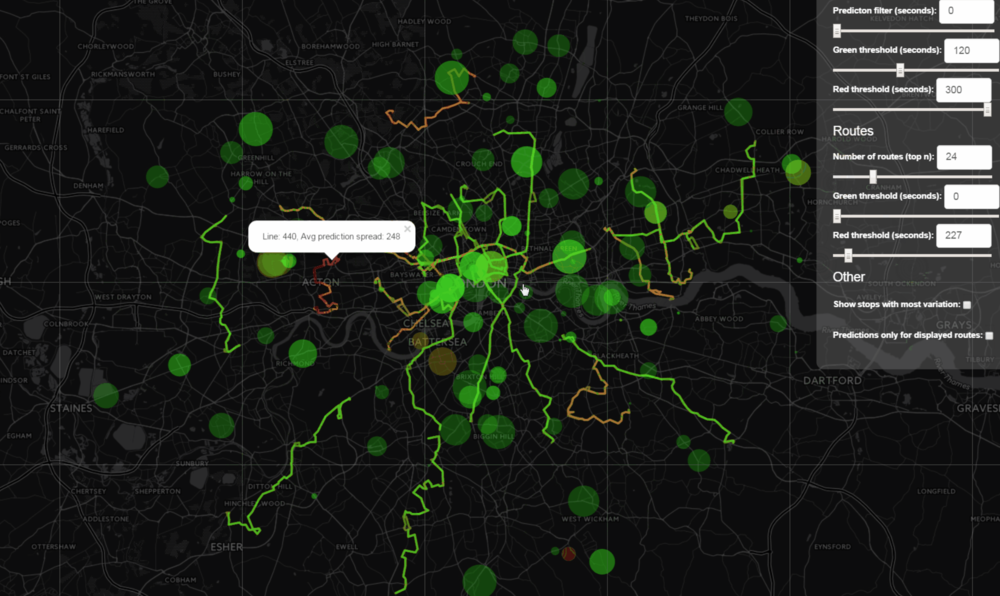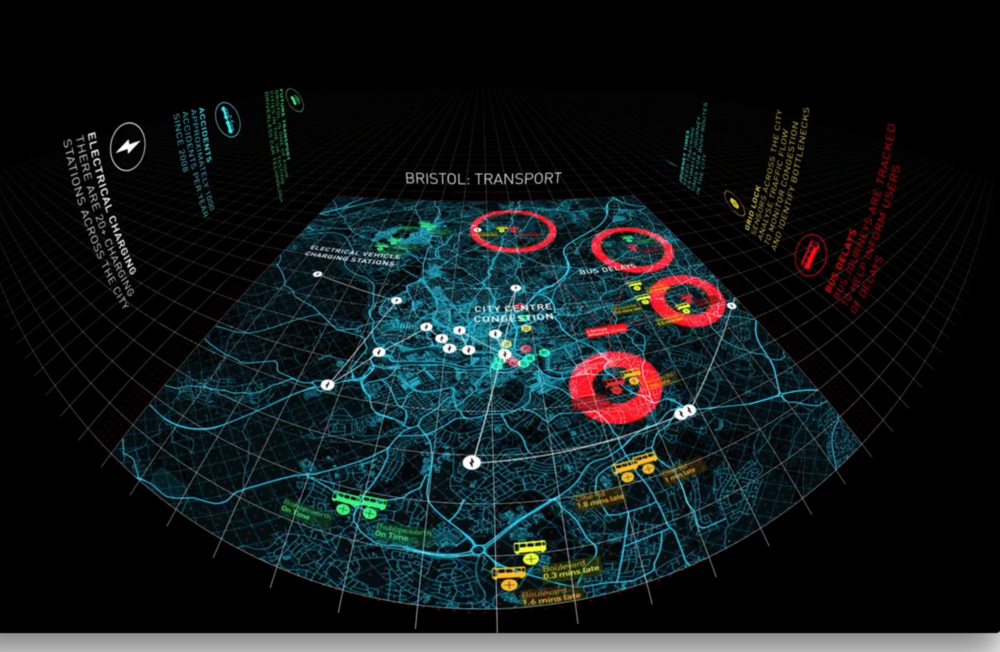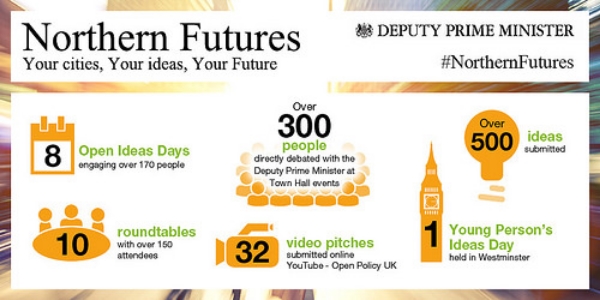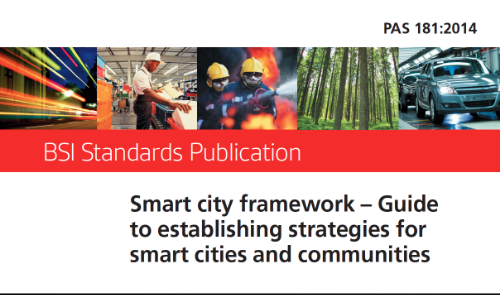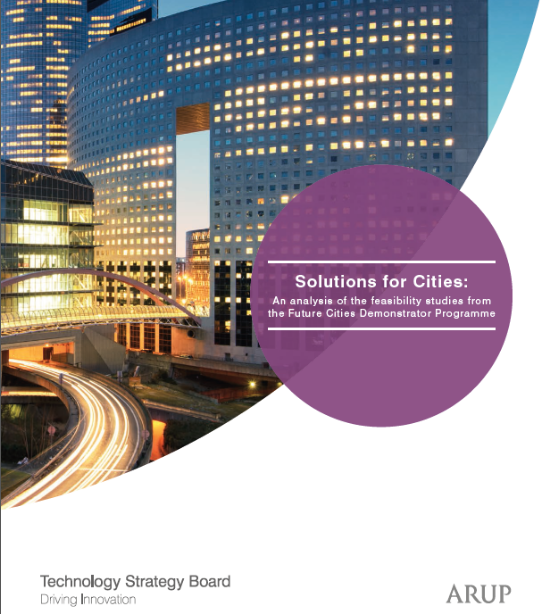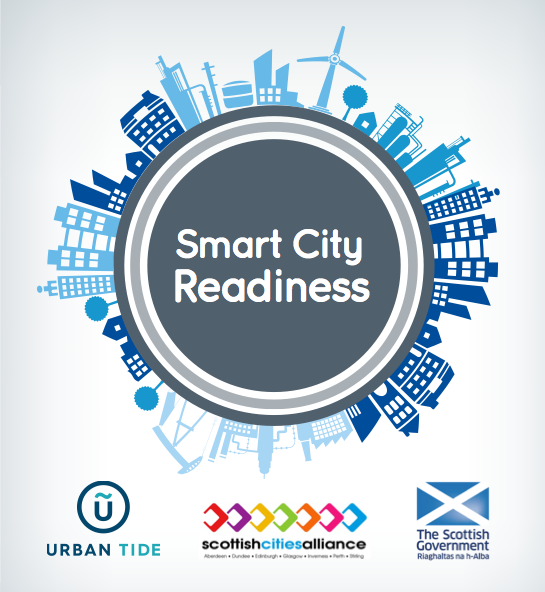Cisco and the Smart Cities Council: 4 Messages from America...
Urban Tide retweeted a document that Cisco had compiled at its Internet of Things World Forum, in partnership with the Smart Cities Council. The title being 'Uncover Barriers and Opportunities for Smart Cities'.
October 30, 2014
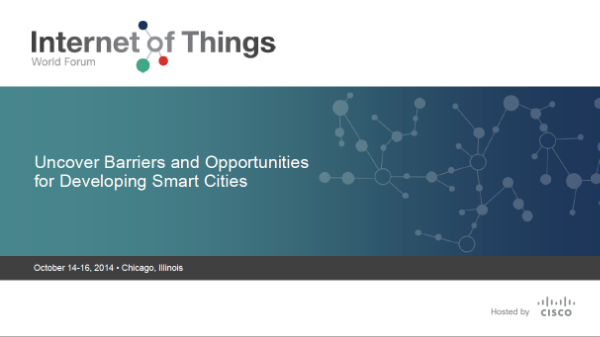
Highly informative and impeccably presented, the report gave a fascinating insight into the current status quo with regards to smart cities in North America. However the facts and issues raised could easily be applied anywhere else in the world, and the findings here are crucial in the global conversation of smart cities to make sure urban environments develop as they should.
Below are some thoughts and analysis on the work.
1. Money Matters
The biggest inhibitor to any smart city, or smart city initiative, according to 35.4% of those surveyed, is cost.
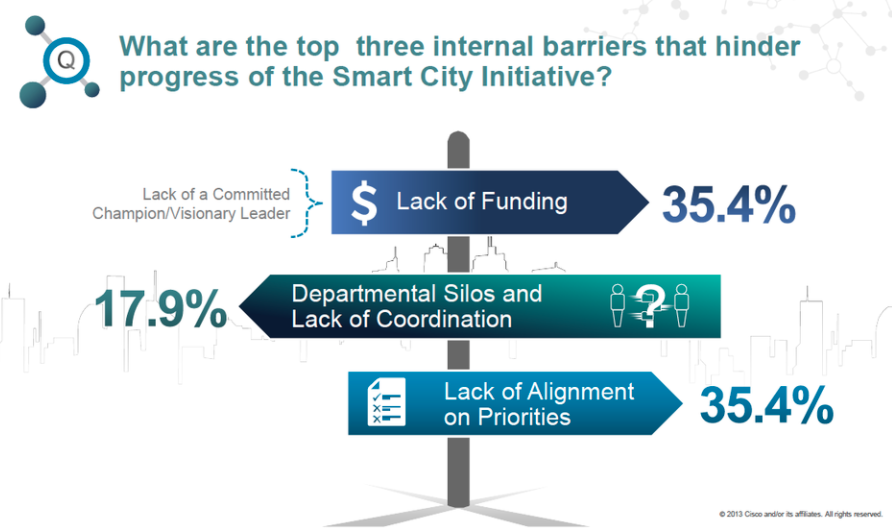
This does not simply extend to the costs of setting up a project, but also the financial obligation involved to operate and sustain the venture. An interesting quote on what percentage of available funding goes towards day-to-day operations can be viewed below.
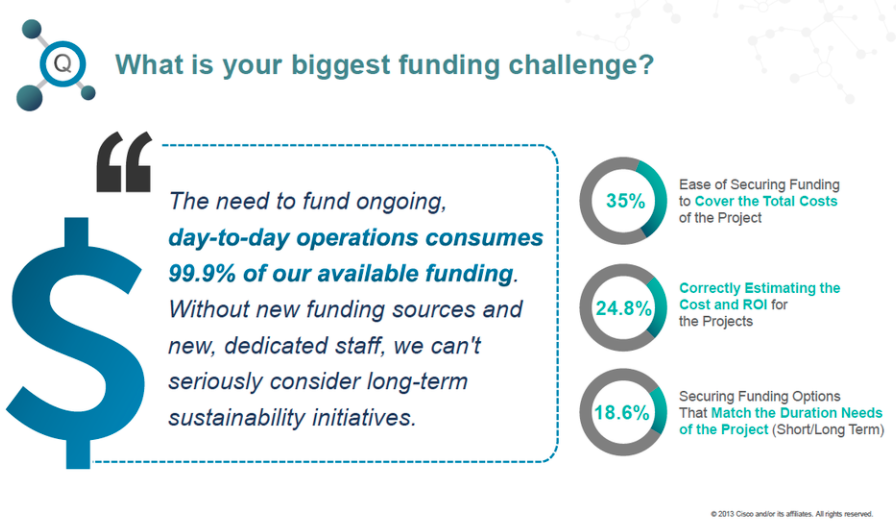
A new funding source could and arguably should be increased investment from the private sector. Not only could it be contended that there is an element of corporate social responsibility involved in furthering the smart cities cause but put simply the potential Return on Investments (ROIs) are staggering in a market forecasted to be worth $1.5 trillion by 2020.
A greater balance than the table below has to be sought, especially when governments the world over are looking for ways to save money.
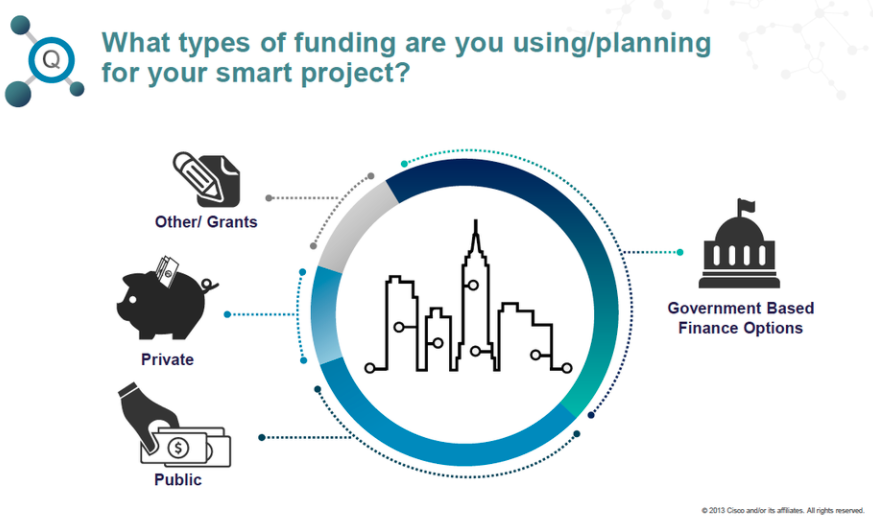
2. Current Approaches are too Conservative
What is clear from this work is that there needs to be less talk and more action. Again this is representative of smart cities initiatives across the globe – as evidenced in our most recent India blog and Urban Tide’s experience in Scotland’s Smart Cities Readiness Assessment.
As the figure below evidences, well over half of those surveyed have begun planning smart cities projects – but the further along the spectrum towards full deployment these initiatives travel the more drastically the percentages fall. 13.9% of those who responded to the survey have seen a full deployment of 'Initial Projects' implemented which is not a satisfactory return given the prominence of the smart cities movement. Money will always be an issue, but will also, more often than not, be available one way or another. More calculated risks have to be taken to optimise the potential of this huge opportunity.
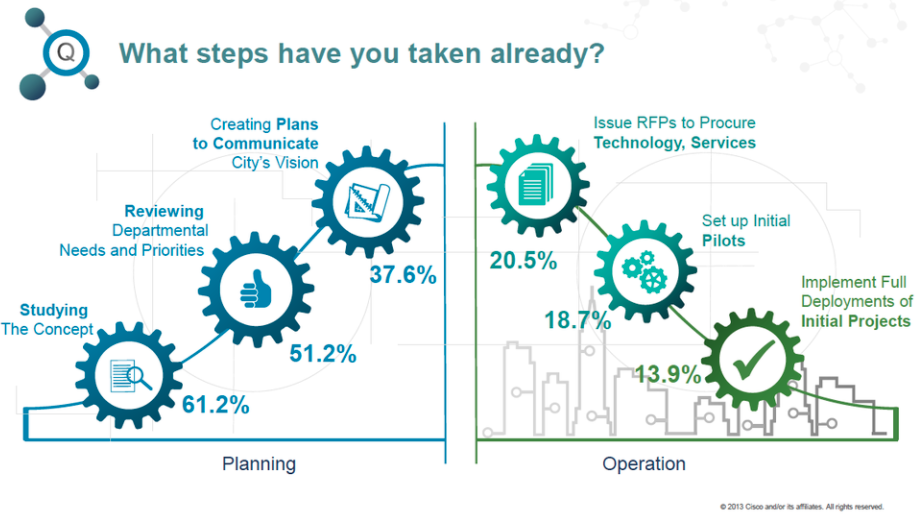
3. Current Approaches are too Disjointed
Aside from the financial element, upon closer inspection of the results, it would appear that a fragmented and disjointed approach is contributing to the somewhat underwhelming smart cities feedback in North America.
2/3 of respondents were found to have no cross-departmental team for Smart City Development. This is alarming for two reasons. Firstly, the issue is not being afforded the significance that it deserves and secondly, integration and synchronisation are benchmarks of sophisticated smart city projects and smart cities themselves. If the trend is to not have inter-related, departmental teams then the scope for incompatibility and inefficient delivery of initiatives is far greater than it perhaps should be.
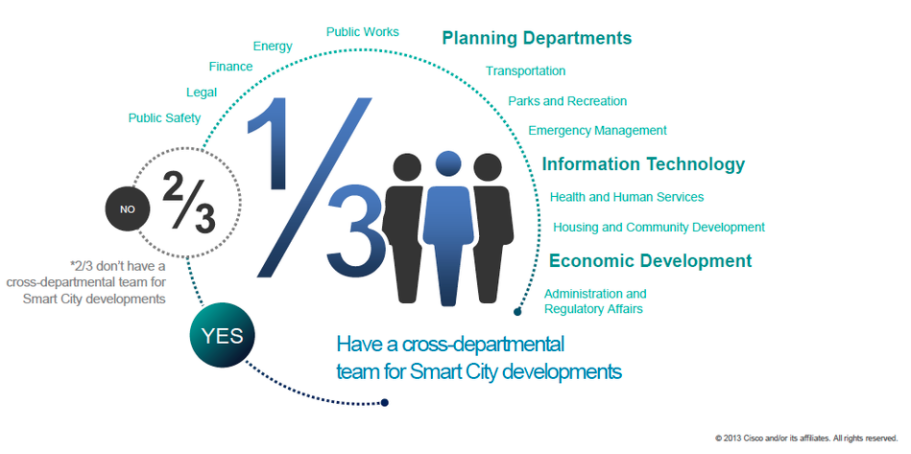
Along similar lines, 68% of respondents answered in the negative when posed the question ‘did you prepare a business plan for the upcoming or current Smart City investment’.This is a worrying statistic as the most important step and greatest indicator of commitment to an initiative is being routinely ignored. It also seems to vindicate the lack of private funding available as basic criteria are not being satisfied when it comes to courting investment. Any due diligence investigation would imperil chances of funding and because the figure quoted is so large, it tarnishes all Smart City projects, business plan or no, as likely to be ill informed and ill thought out.
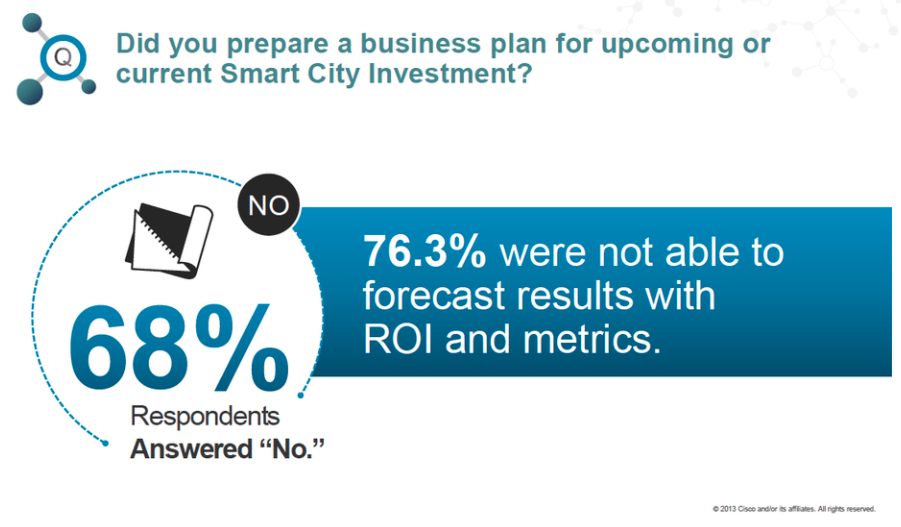
It could also be argued that there is a misalignment of smart cities ambitions and expectations from the feedback received (see below).
At Urban Tide we believe that people aswell as data and digital technologies etc are at the heart of any smart city project. Therefore 'Creating a more Attractive City and Improving the Quality of Life' should be inherent within every 'need and opportunity', rather than a stand alone objective.
Furthermore, 'Enhancing the Cities' Global Attractiveness to Business and for Economic Development', should be a natural by-product of smart cities and smart cities initiatives. To have it as a isolated 'need and opportunity' (especially one so high ranking) could be to the detriment of those already living and working in the city and adds a superficial element to projects that are deployed in this area.
"If you build it, they will come..."
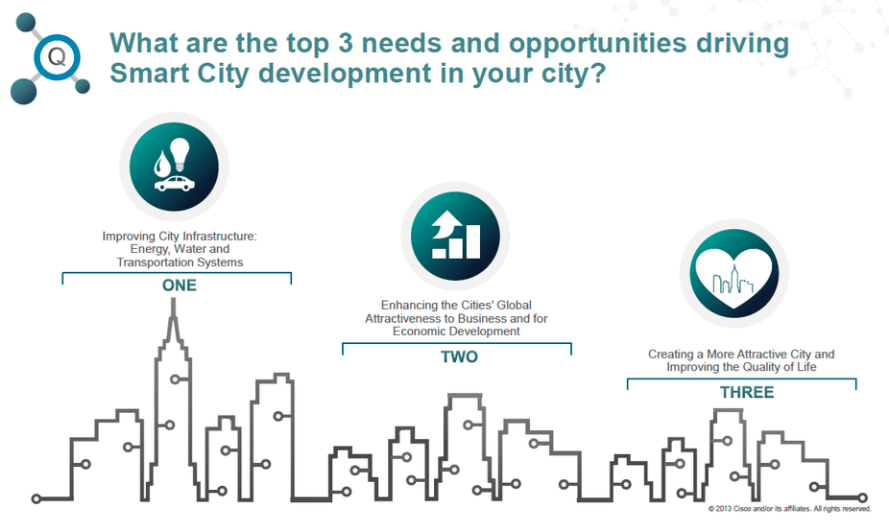
At its most linear, the data collected for the survey itself tells the story as it stands. Of the 40,000 subscribers to the Smart Cities Council Newsletter, the vast majority being municipal experts, 668 responded to the survey that was issued. This is a response rate of 1.67%. It is clear that smart cities are not as prominent on the radar of those with the power to move things forward. Yet. Hopefully.
The potential of the opportunity and the solutions that smarter cities can offer to the challenges we will encounter as our global population living in urban areas increases makes this a matter of urgent priority.
4. Progress Does Exist
All this being said, the US has some fantastic examples of smart cities innovation, providing invaluable guidance and examples to the global conversation. For instance, both Chicago and New York have made giants strides with regards to Open Data platforms and the mobile carrier Verizon are rumoured to be building their own smart city, tapping directly into the huge potential of the 'Internet of Things'.
These projects are extremely exciting but have to be examples to follow rather than stand-alone innovations.
The last page of the document as featured below included 10 Top Tips which if followed, should go a long way to achieving this goal.
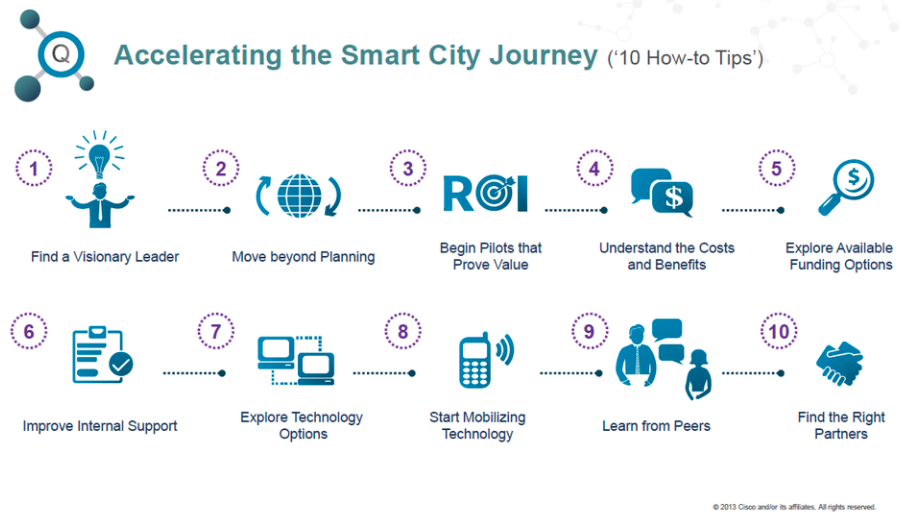
In Conclusion
At the the time of writing, the smart cities movement in America could be perceived as lacking a bit of incentive, innovation and urgency. Smart cities initiatives are at their best when they are proactive, collaborative, organised from inception and with a clear end goal in mind - usually with citizens at their heart.
It is not all doom and gloom though - not by a long shot. There are some stunning pilot projects going on across the pond and the impression that exists is that all is needed is a jolt to really kick the smart cities movement into gear in America. This would result in hugely encouraging progress both there and globally.
More
Unlocking Ireland's Data Potential: Navigating the Open Data Directive with UrbanTide
News

UrbanTide's Commitment to Security: Officially ISO 27001 Certified!
News

uZero was awarded the edie Net Zero Innovation of the Year: Software, Systems & Services Award
News

Tackling the growing fuel poverty crisis and supporting the Just Transition to net zero
News

Low Carbon Homes’ Home Upgrade Show: Innovations in Retrofit
News
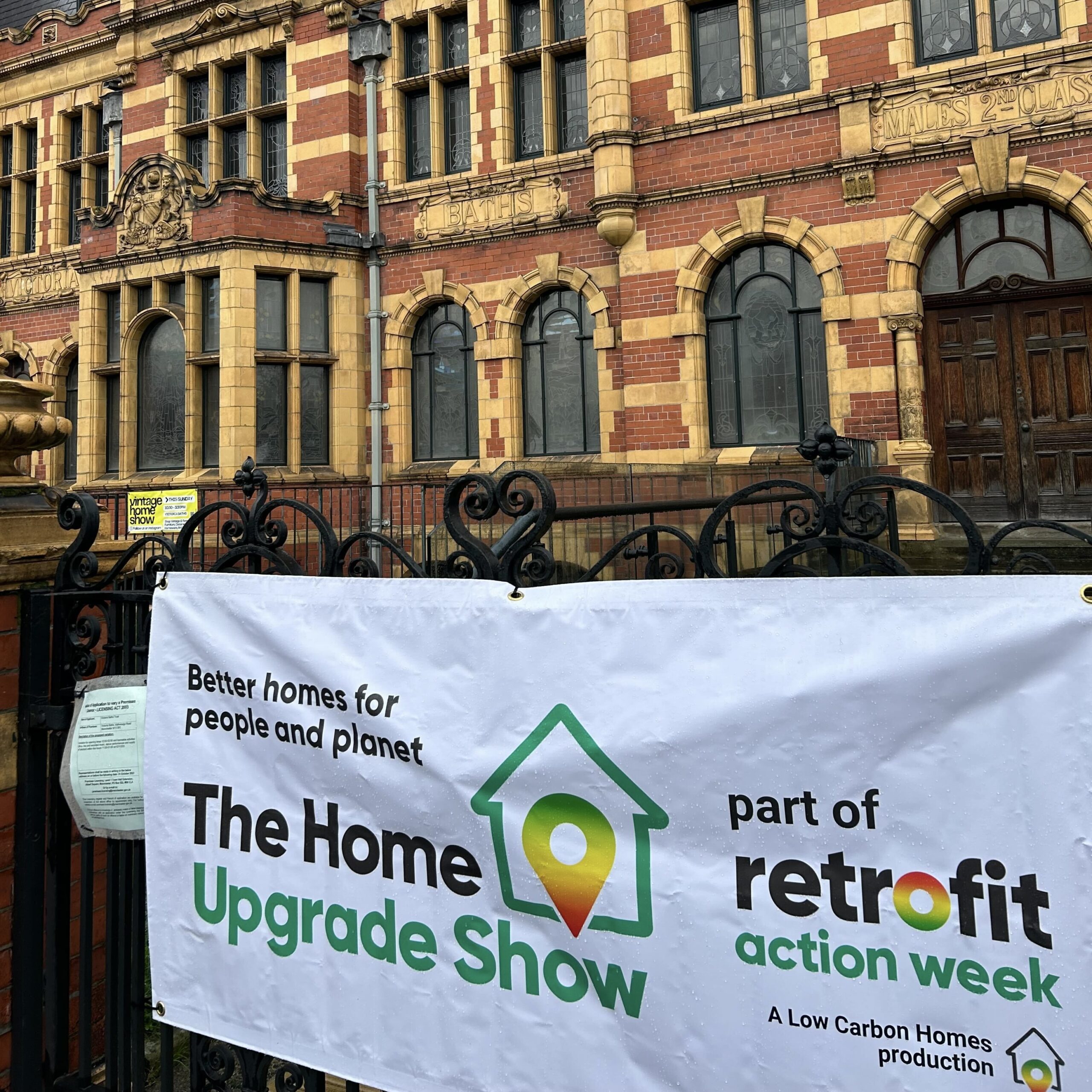
Data Integration and Collaboration are critical for the future of Transportation: Insights from JCT Symposium
News

uMove to support Bedfordshire Council to achieve ambitious sustainability plans
News

Active travel, the current challenges and solutions
News

Using the power of data to build cities of tomorrow
News

uMove supports the Smart Manuals for Streets programme from DfT
News

Scotland's Cycling Framework Makes Infrastructure Greatest Priority
News

Reducing emissions and improving health with active travel
Cycling Scotland

Targeting energy-efficiency campaigns to households most in need
Greater South East Net Zero Hub

Protecting an aging population from fuel poverty
Dartford Borough Council and Dover District Council

Identifying households eligible for energy grant support
The Wise Group

Facilitating active travel behavioural change with data
SEStran

Helping identify customers in or at risk of fuel poverty.
UK Power Networks

Open data promotes transparency, builds trust and empower citizens
Ireland Open Data Training

Identifying and unlocking new revenue from business rates with AI
North Lanarkshire

Tackling the growing
fuel poverty crisis with data and AI
UKRI

Understanding how we live and use our homes with real-time energy data
Smartline

Managing the impact of noise pollution on our cities
Noiseability

Accelerating the transformation of the UK’s energy systems
Energy Systems Catapult

Creating an integrated, affordable low-carbon energy system of the future
ReFLEX Orkney
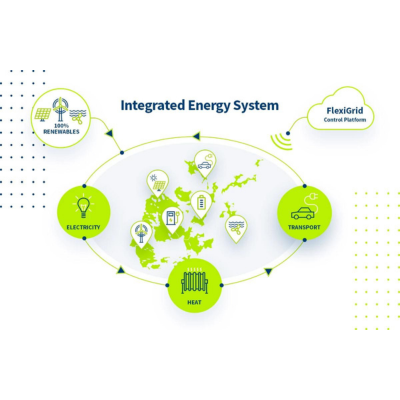
Investing in sustainable transport infrastructure to become carbon neutral
Somerset County Council

Identifying ageing households at risk of cold and damp home
Sunderland City Council

Innovate UK funding to help our Planet Centred approach to retrofitting Europe’s leakiest homes
News

Open data is now a legal requirement in Ireland and the EU
News

New ‘uZero’ Artificial Intelligence software could help millions with their fuel bills
News
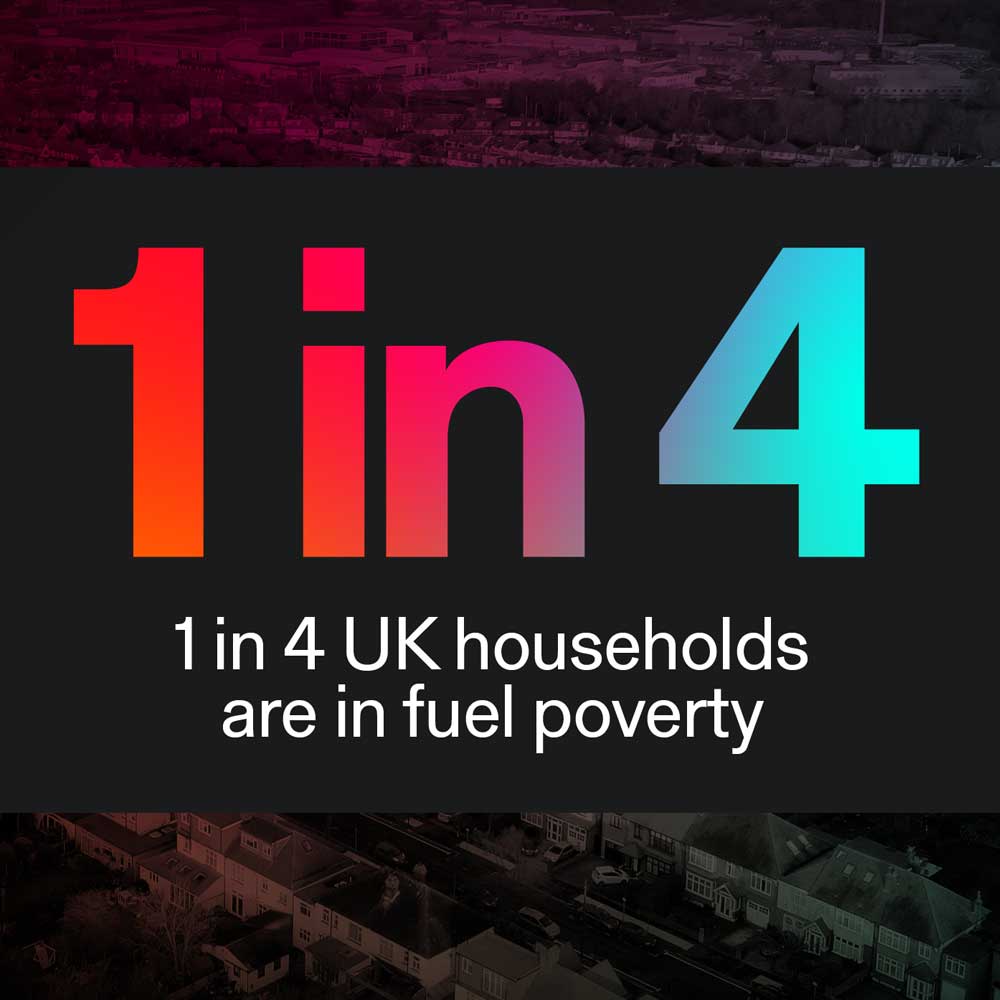
UrbanTide helps secure £48 million funding for Scottish Cities Alliance
News

UrbanTide leads £24 million program to make Glasgow a Future City
News

Building smart communities for OPEN Glasgow Engagement Programme
News

UrbanTide launches IoT data insights platform, uSmart
News
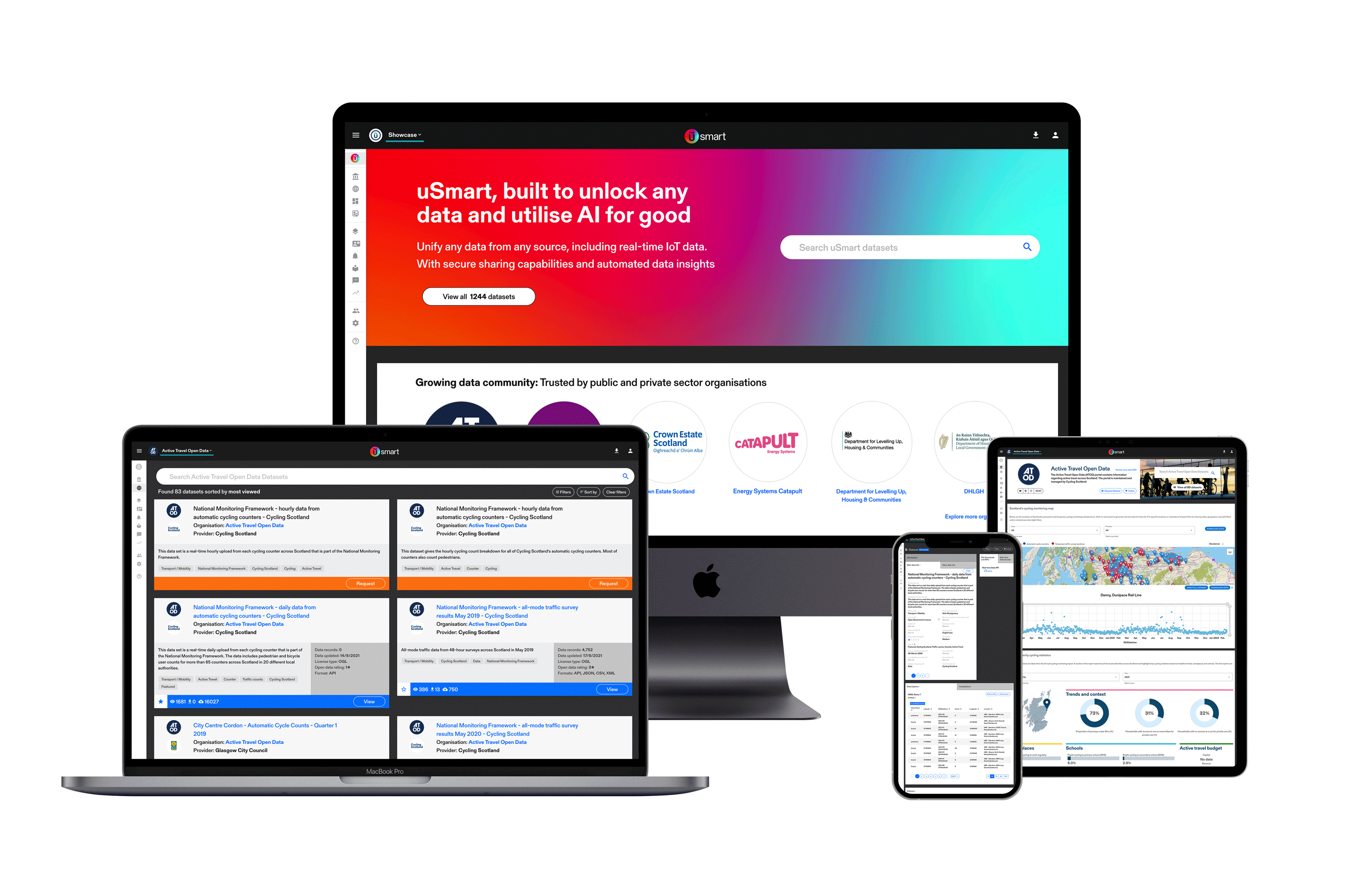
uZero announced as UKRI MEDA competition winner
News

Social Connect is a unique UK Power Networks (UKPN) innovation project
News

UrbanTide announces partnership with Energy Systems Catapult
News

UrbanTide marks four years of Open Data training in Ireland
News

Noisability: UrbanTide wins major bid as part of SynchroniCity program
News

UrbanTide joins prestigious Artificial Intelligence accelerator
News

UrbanTide recognised at ScotlandIS Digital Technology Awards
News

ODI publishes case studies that show how open data can be used in service redesign
News

UrbanTide teams up with North Lanarkshire Council to make better services with data
News

UrbanTide, Snook and North Lanarkshire Council announced as finalists for the 2018 Digital Technology Awards
News

Innovative smart communities IoT project powered by USMART
News
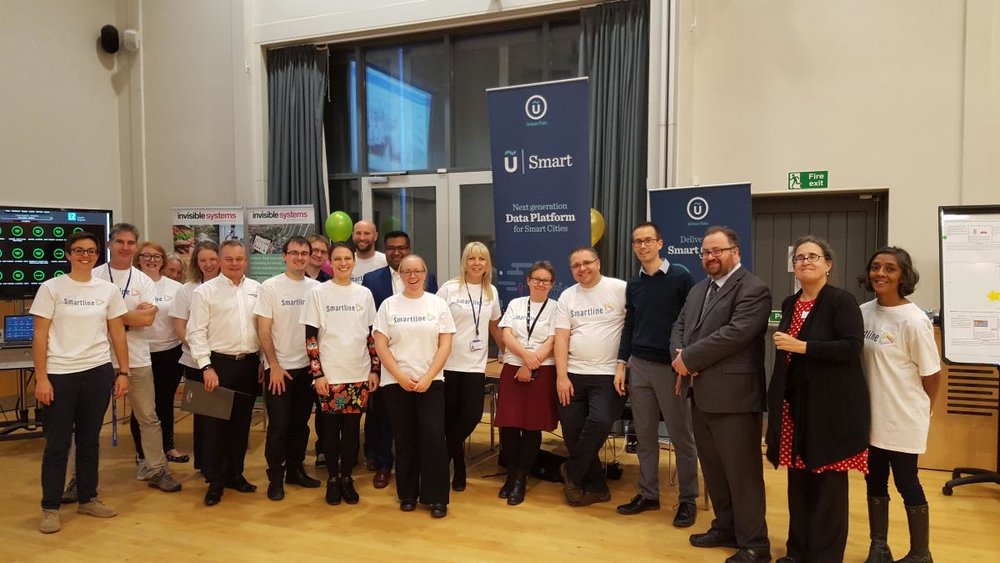
The Power of Data Science in the Health and Care Sector
News

UrbanTide to help transform Ireland by unlocking the power of open data
News

Stay ahead of the curve by learning more about these new smart cities standards
News

#DataFest17 - 12 key lessons we learned about smart cities, communities and the future of data
News
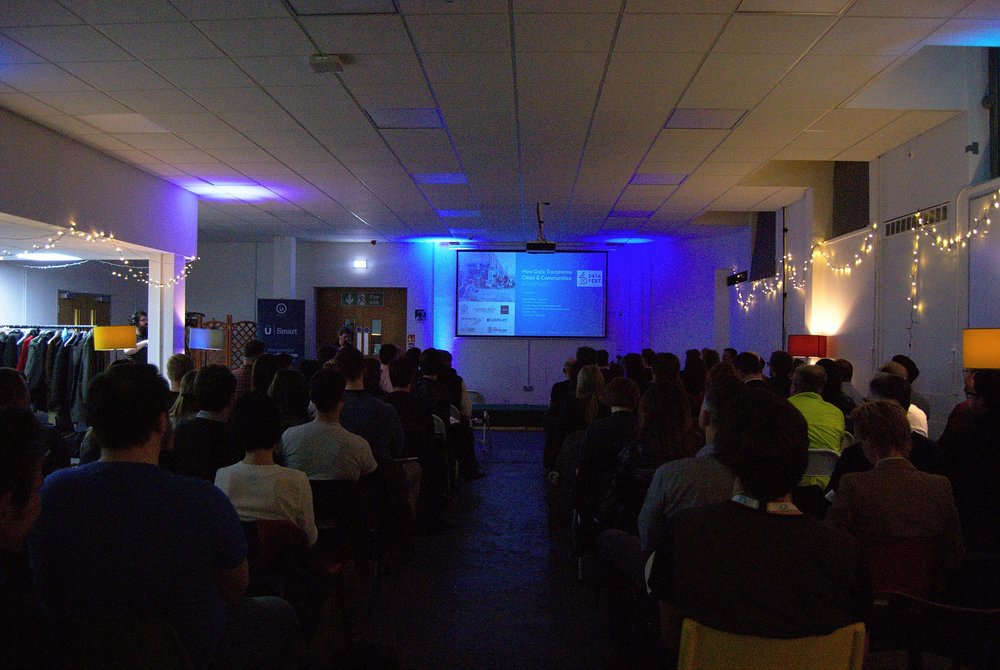
Emerging ideas for a renewed (Y)Our Glasgow City Centre
News
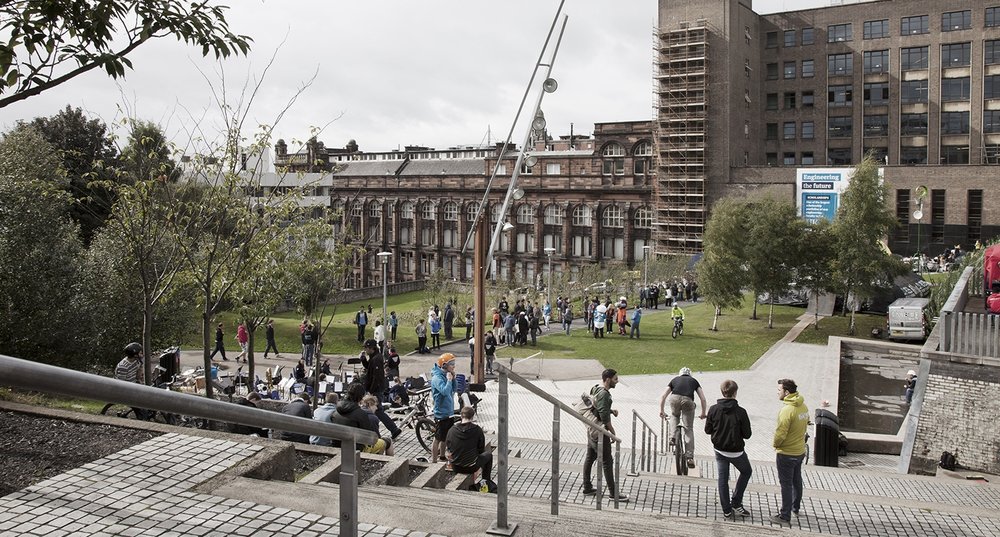
Future Health Hack - building the future of healthcare one line of code at a time
News
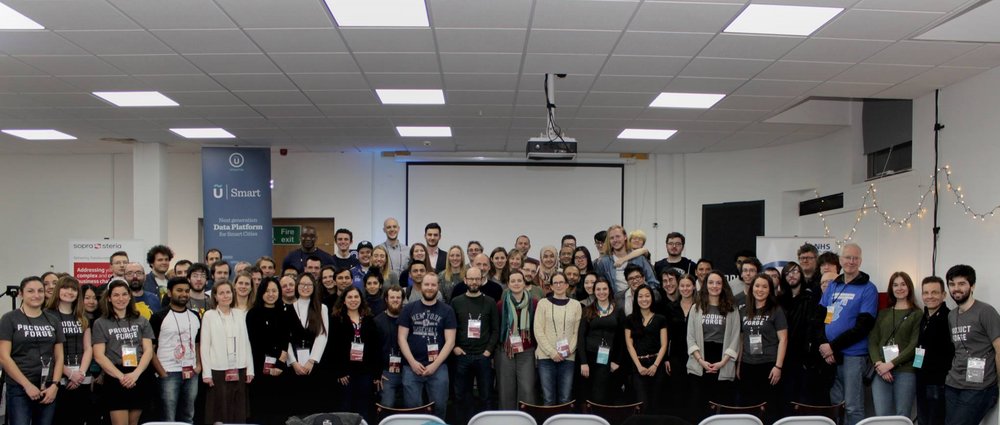
Meet our API Data Explorer – aka your new best friend if you are working with big data
News

Car parks ‘extinct’ in smart cities of the future?
News

3 awesome USMART features - with more coming soon!
News

Data scientists and USMART: a match made in heaven
News

We are now Regional Supporters of Open Data Impact Map
News

Next generation open data platform looking for beta testers!
News

Glasgow city centre regeneration - how smart can Glasgow be?
News

Open data - is the open private sector the next frontier?
News

Open data everywhere! Review of open data maturity in Europe, UK and Scotland
News

Feedback from our year delivering open data training for Scottish Government
News

Announcing our new open data training programme
News

Glasgow City Centre District Regeneration Frameworks
News

Metadata and metadata standards- reflections from our Chief Operational Officer
News

All about our Smart Cities Maturity Self-Assessment Tool
News

Open data training for Scotland's public sector
News

Engage - invest – Exploit (EiE) or Enjoyable - interactive - Experience (EiE)
News

UrbanTide and India: 5 Lesson's Learned from Simon's Trip to the Subcontinent
News

Cisco and the Smart Cities Council: 4 Messages from America...
News

Edinburgh continues to iterate, and then iterate again
News

Start your journey
Take a look at our product page to find out which UrbanTide AI tool has been designed for your needs.
Find out how we can support your data and AI projects and see our growing AI portfolio in action.













